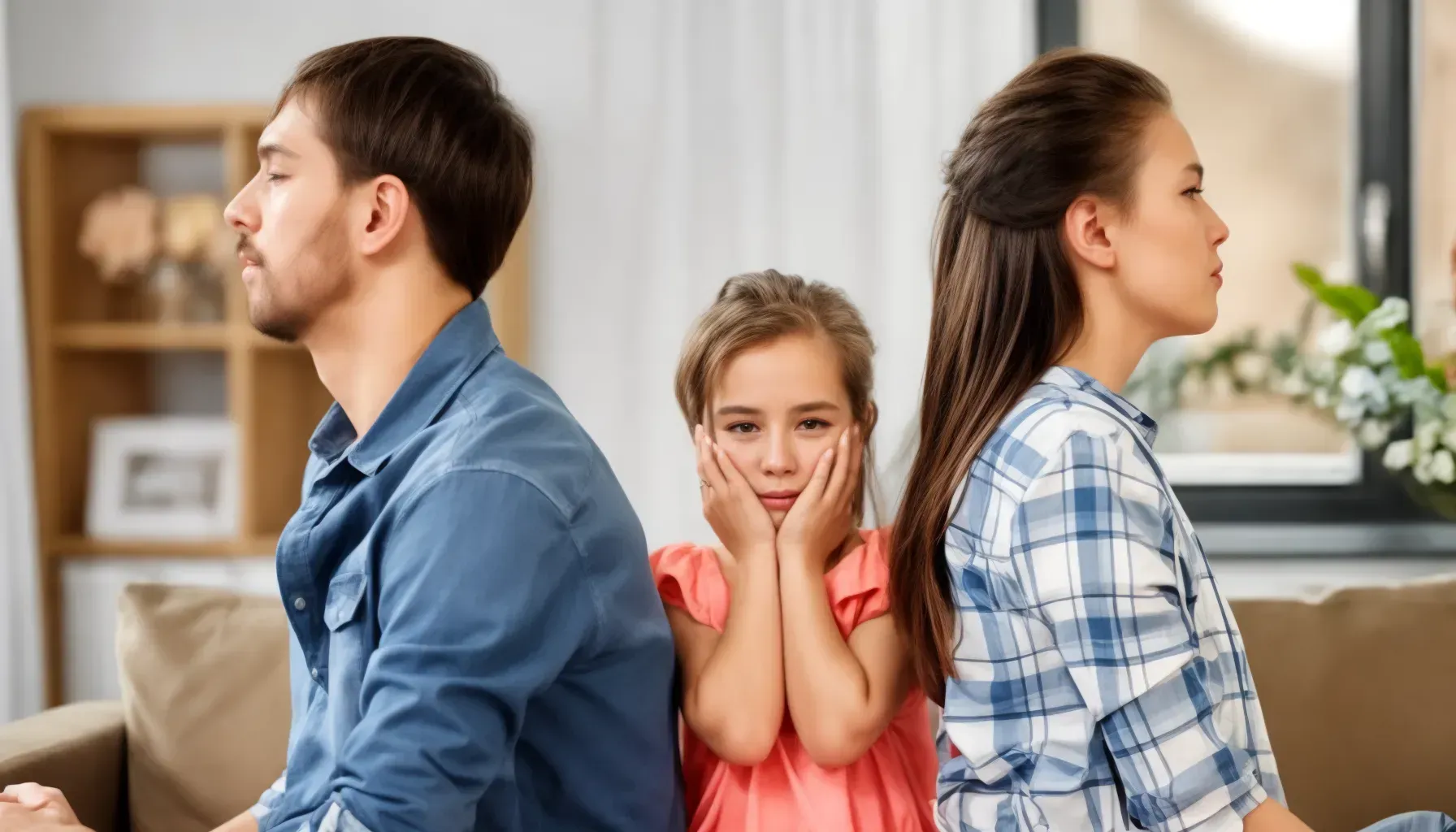Explore Our Blog
Parenting & Child Development – Part 15: Helping Your Child Through a Divorce or Separation
Advance Minds Blog
A safe space to explore subjects within the community such as mental health, substance abuse and personal identity.
Our safe space also provides the opportunity for real individuals to express their hardships and success through writing.
When a family changes, children don’t just need explanations—they need love, honesty, and emotional safety.

Why Divorce Can Feel So Big for Kids
💔Children often view their parents as their emotional anchor.
When that anchor shifts, it can feel like the whole world is unstable.
Kids may:
- Blame themselves
- Worry about the future
- Feel torn between parents
- Act out or withdraw emotionally
Even in peaceful separations, the emotional impact on children is real and should be handled with care.
🗣️ Keep Communication Simple and Honest
Children don’t need every detail—but they do need clarity.
Try:
- “We both love you very much, and that will never change.”
- “We’ve decided to live in different homes, and that’s not your fault.”
- “You’ll still get to spend time with both of us.”
Avoid blame or negative talk about the other parent.
Your child shouldn’t feel like they need to pick a side.
💞 Stability Is Reassurance
In a time of change, consistency helps kids feel safe.
Offer:
- Regular routines (meals, bedtime, school)
- Predictable visitation schedules
- Reassurance of love and attention
- Age-appropriate updates as things evolve
Even small rituals like Friday night pizza or bedtime stories can give kids a sense of normalcy.
🎭 Watch for Hidden Emotions
Not all children express sadness or fear openly. Some may:
- Become extra “good” to avoid being a burden
- Show anger over unrelated things
- Struggle with sleep or focus
- Regress to younger behaviors (bedwetting, clinginess)
Respond with patience and compassion—not punishment.
These signs are often cries for connection.
🧩 Support Beyond the Family
It’s okay to ask for help. Children (and parents) may benefit from:
- A counselor or child psychologist
- School-based support staff
- Books or videos that explain divorce in kid-friendly ways
- A trusted adult your child can talk to
You don’t have to do this alone—and neither do they.
🤝 Co-Parenting with Respect
Even if your relationship didn’t end well, aim to work together in your child’s best interest.
That means:
- Agreeing on routines and boundaries
- Speaking kindly about each other in front of your child
- Avoiding messages like “Don’t tell your mum/dad”
- Attending school events or birthdays together when possible
Modeling respectful co-parenting helps your child feel secure in both homes.
🌿 Final Thoughts 💞🌈
Divorce is a transition—not a tragedy—when handled with love, clarity, and support.
Your child doesn’t need perfection. They need presence.
With intentional care, they can emerge from this chapter feeling safe, seen, and deeply loved—by both parents.

















